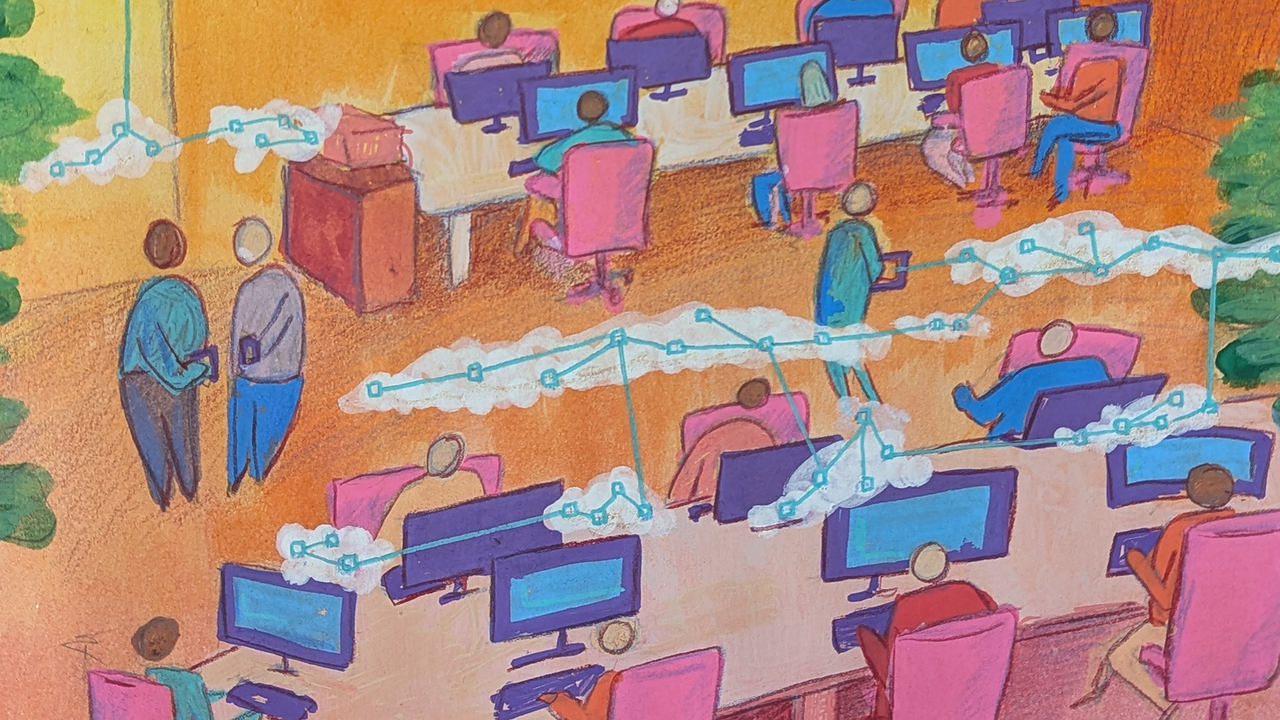What the OECD Skills Outlook 2025 means for VET and AI
Skills and competencies have always been central to vocational […]
Generative AI and the Future of K-12 Education – Towards Sustainable and Ethical Innovations to Strengthen Human Agency
Maria Perifanou has announced the Call for Papers for a Special Issue in the Educational Technology Research and Development (ETRD) Journal on Generative AI and the Future of K–12 Education.The issut aims to advance research, theory, and practice on the responsible, sustainable, and ethical use of GenAI in K-12 education, promoting the significance of human agency within GenAI implementations. It invites contributions that explore and discuss the ethical equity and policy dimensions of GenAI adoption in K-12 educational contexts. Submissions may include theoretical reviews discussing frameworks, theoretical and conceptual analyses, ethical implications, empirical studies, and critical reviews. Collectively, these contributions […]
Beyond the Hype: What AI Really Means for Pedagogy and the Role of Teachers and Trainers
There is no shortage of noise about Artificial Intelligence in education. We are bombarded with daily announcements of new tools and bold predictions, swinging from utopian visions of personalized learning to dystopian fears of teacher redundancy. It can be difficult to find a signal in the noise. A a new white paper by Tom Chatfield, “AI and the Future of Pedagogy,” is a welcome intervention. It cuts through the hype and grounds the conversation not on the technology itself, but on the principles of how humans learn. For those of us in vocational education and training (VET) across Europe who […]
Digital Literacies Network
I am very happy to see the launch of the Digital Literacies Network, designed to Digital Literacies Network designed to empower Individuals and Communities and launched by my long time friend Cristina Costa, Associate Professor at Durham University in the UK and her colleague Michaela Oliver. The Digital Literacies Network, they say, “is dedicated to empowering digital citizens through collaborative learning and creative practice in digital culture. We believe that digital literacy is not just about technical skills, but about cultural knowledge, identity, voice, and participation in a diverse, interconnected world. We strive to: • Co-produce knowledge: working with young […]
On bursting bubbles, AI shopping and AI slop
Its a shorter article this week as I am off to Lueven in Belgium for the kick off meeting of a new project for schools in Europe, AI Ready. I’ll report on that meeting next week. But as I write, the news is buzzing rumours about a market correction, or put more vividly a burst bubble, in the value of AI companies. Its been some time coming. Market prices of companies like OpenAI, Microsoft, Anthropic and of course Nvidia have soared in recent months. Vast sums have been promised for developing the AI infrastructure with limited. justification. Indeed much of […]
AI Marking Workflow
Gloria Mendoza / https://betterimagesofai.org / https://creativecommons.org/licenses/by/4.0/ ollowing on from my last post around co-design, there seems to be an increasing number of experiments with educational institutions developing their own applications, rather than being totally dependent on commercial ed tech providers. One area attracting attention is assessment where teachers and trainers in vocational education are used to working with colleagues, especially from examining bodies, in designing assessment rubrics and processes. Last year, the UK Jisc organisation launched a pilot to explore how AI could help reduce workload around marking and feedback. That work continues this year, they say, with the KEATH, […]
From Procurement to Partnership: A New Era for EdTech?
For decades, the story of educational technology has been a one-way street. Technologists built the tools, and educators were persuaded to adopt them. The end-users, the learners themselves, were rarely part of the conversation. This has led to a flood of digital tools focused on efficiency rather than pedagogy, a point that Dr. Philippa Hardman explores in her latest newsletter. The Old Model: Efficiency Over Pedagogy Dr. Hardman argues that the traditional EdTech model has been driven by the wrong questions. Instead of asking, “How do we enable people to learn more effectively?”, the industry has been focused on “What […]
Call for Researchers: Shape the Future of AI in Education with UNESCO and the European Commission
A new joint UNESCO-European Commission project is looking at the intersection of artificial intelligence and education? And they are seeking dedicated researchers to conduct AS-IS and Gap Analyses for the “FutureProof Education: Supporting schools in the AI evolution” project. About the Project The ‘FutureProof Education project’ is a collaborative initiative that brings together six European education systems. Its primary goal is to promote the ethical, meaningful, and safe integration of AI in schools. This will be achieved by developing evidence-based strategies, tools, and guidance for teachers, school leaders, and education authorities. This project is funded by the European Union through […]
What knowledge are we assessing?
Last Tuesday, the electricity for my apartment was cut off from 8.30 until 1430 in order for essential repairs. Deprived of my normal morning browsing the news and using the internet for searching new ideas and publications, I was driven to going through my completely disorder downloads folder. It was somewhat shameful how many papers and documents I had downloaded, neglected to read and failed to properly index and file. But it turned upon some very worthwhile publications. One which I recommend is the recent UNESCO publication, AI and the future of education: Disruptions, dilemmas and directions. The introduction explains […]
How to Use Generative AI in Educational Research
I’ve not read this yet. But from the abstract it looks promising and it comes highly recomended by friends I trust on LinkedIn. But the reason for posting it now and unread is that until November 3, it is available for free download. And we all know books are expensive. Anyway, here is the abstract. Artificial Intelligence technologies have impacted our world in ways we could not have imagined a decade ago. Generative AI (GenAI), a powerful, complex and general use subset of AI has become available to the public in recent years. GenAI’s effect on education, research, and academic […]




